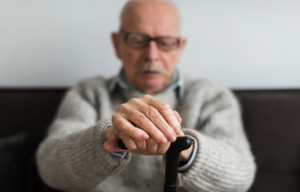Understanding Emotional Trauma
Emotional trauma, often referred to as psychological trauma, encompasses a range of experiences that can profoundly impact an individual’s mental and emotional well-being. Whether stemming from childhood abuse, a traumatic event, or ongoing relationship difficulties, emotional trauma leaves deep scars that can affect various aspects of life. Childhood trauma, for example, can lead to issues such as low self-esteem, anxiety, and depression in adulthood. Similarly, experiencing relationship trauma, such as betrayal or abandonment, can result in trust issues and difficulties forming healthy connections with others. Post-Traumatic Stress Disorder (PTSD) is another form of emotional trauma, commonly associated with experiencing or witnessing a distressing event, causing symptoms like flashbacks, nightmares, and hypervigilance. Complex trauma, which involves prolonged exposure to traumatic events, can have even more pervasive effects, impacting one’s sense of self and ability to regulate emotions.
Recognising Signs of Emotional Trauma
Signs of emotional trauma can manifest in various ways, making it essential to recognise and address them effectively. Emotional symptoms may include feelings of sadness, fear, anger, or numbness, while behavioural symptoms can range from avoidance and withdrawal to self-destructive behaviours like substance abuse. Cognitive symptoms may involve intrusive thoughts, difficulty concentrating, or negative self-beliefs, while physical symptoms such as headaches, fatigue, and gastrointestinal issues can also occur. These signs often interfere with daily functioning and can lead to significant distress if left unaddressed. Thus, being able to identify these symptoms is crucial for seeking appropriate support and interventions.
Coping Strategies for Healing Emotional Trauma
Healing emotional trauma requires a multifaceted approach that addresses both the psychological and physiological aspects of trauma. Seeking professional help from a therapist trained in trauma-focused therapies like Cognitive Behavioural Therapy (CBT) or Eye Movement Desensitisation and Reprocessing (EMDR) can provide invaluable support. Additionally, medication may be prescribed to alleviate symptoms such as anxiety or depression. Engaging in self-care practices is also essential for promoting healing, including activities like mindfulness meditation, regular exercise, and maintaining a healthy lifestyle. Building a strong support system of friends, family, or support groups can offer validation, understanding, and encouragement along the healing journey. Furthermore, expressive therapies like art, music, or writing can provide alternative avenues for processing emotions and finding healing.
Overcoming Emotional Triggers
Learning to manage and overcome emotional triggers is a crucial aspect of healing from trauma. Identifying triggers involves recognising specific situations, people, or memories that evoke intense emotional reactions. Once identified, individuals can develop coping mechanisms to regulate their emotional responses and reduce distress. Gradual exposure therapy, under the guidance of a therapist, can help desensitise individuals to triggers over time, allowing them to confront and process their trauma in a safe and controlled manner.
Cultivating Resilience and Post-Traumatic Growth
Despite the pain and suffering caused by emotional trauma, many individuals are capable of resilience and post-traumatic growth. Resilience involves bouncing back from adversity and finding strength in the face of challenges. Strategies for building resilience include developing a positive mindset, finding meaning and purpose in life, and cultivating gratitude for the present moment. Additionally, embracing post-traumatic growth involves recognising the personal growth opportunities that can arise from adversity. By reframing their experiences and focusing on their strengths, individuals can emerge from trauma with a renewed sense of purpose and resilience.
Healing Through Connection and Community
Connection and community play a vital role in the healing process, providing individuals with support, validation, and a sense of belonging. Building supportive relationships with friends, family, or fellow trauma survivors can offer emotional support and understanding. Engaging in group therapy or support groups allows individuals to share their experiences, learn from others, and feel less alone in their journey towards healing. Giving and receiving support within a community fosters a sense of connection and empathy, creating a supportive environment for healing to occur.
Embracing Self-Compassion and Forgiveness
Self-compassion and forgiveness are powerful tools for healing emotional trauma and fostering self-love and acceptance. Practising self-compassion involves treating oneself with kindness, understanding, and non-judgement during difficult times. By acknowledging their pain and suffering with compassion, individuals can soothe their own emotional wounds and cultivate resilience. Similarly, forgiveness involves letting go of resentment and bitterness towards oneself and others, freeing oneself from the burden of anger and negativity. Through self-compassion and forgiveness, individuals can find peace and healing on their journey towards emotional well-being.
In conclusion, healing emotional trauma is a complex and challenging process that requires patience, courage, and support. By understanding the nature of trauma, recognising its signs, and implementing effective coping strategies, individuals can embark on a journey of healing and transformation. Cultivating resilience, seeking connection, and practising self-compassion and forgiveness are essential components of this healing journey. With the right support and resources, individuals can overcome the wounds of the past and embrace a future filled with hope, healing, and possibility.




